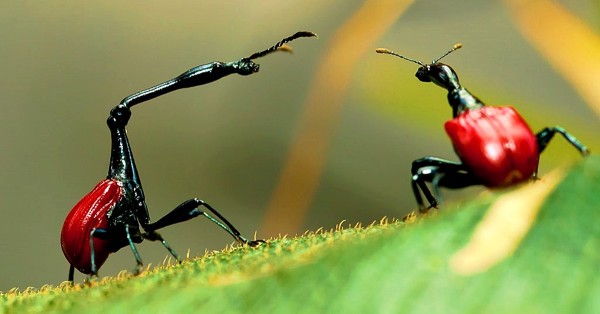
Seven of the World’s Strangest Creatures All Come from This One Place…
3. Madagascar Pochard
This diving duck was thought to have gone extinct in 1991, but a small colony of Madagascar pochards were rediscovered at Lake Matsaborimena in 2006. It was promptly upgraded from “extinct” to “rarest duck in the world,” as there were only 22 known individuals — the low number was likely the result of insufficient food supplies at the lake.

However, the ducks’ population is now on the rise. A breeding program that began in 2009 has yielded thirty-eight ducks, while another forty-two remain in the wild. The program, designed as a safety net in case the wild population once again disappears, hopes to introduce their captive-bred ducks to the wild once they find a safe and suitable habitat.
[content-ad]
4. Brookesia Micra Chameleon
Besides being the smallest chameleon on the planet, the Brookesia micra is also one of the smallest known vertebrates. While adults can reach up to half an inch in length, juveniles (like the one pictured below) can be unbelievably small.

According to the researchers who discovered B. micra, the chameleon’s miniature size is likely the result of limited food and resources in its natural habitat — an islet off the northern coast of Madagascar called Nosy Hara. The B. micra was just one of four dwarf chameleon species discovered on the nearly five-year expedition that lasted from 2003 to 2007.
[content-ad]
5. Darwin’s Bark Spider
This incredible arachnid has both the strongest, and the largest web of any known spider on the planet. The Darwin’s bark spider was first discovered in 2009, when researchers found a massive web suspended above a Madagascan river.

Although the creatures themselves are relatively small in size, Darwin’s bark spiders’ webs can span up to 25 m (82 feet) across, with silk that’s stronger than any other biological substance on record.